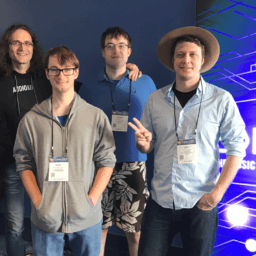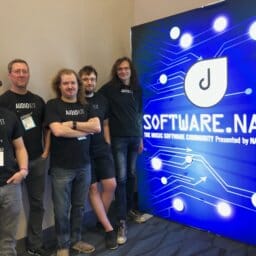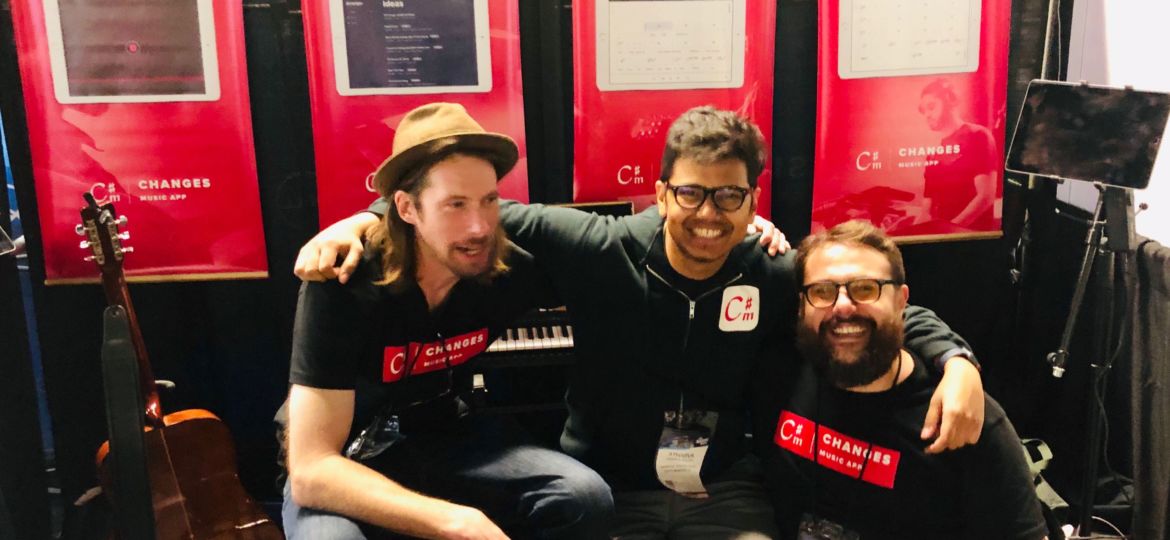
Changes will listen to your guitar or piano playing and transcribe the audio into a rendered chord sheet. This will allow you to spend more time being creative, and less time transcribing. It’s available now in the App Store.
Built with AudioKit, Changes was created by Maximilian Maksutovic, Andrew Hobbs, and Atharva Vaidya. Ever wonder how cool new apps are made? They sat down and answered your questions.
What inspired you to build your app?
The idea came to my co-fonder Andrew when he was playing a national tour with a band in 2017. They were traveling from New Orleans to Nashville and the band didn’t have the setlist finalized for their next show. He was sitting in the back of the van with a legal pad and sharpie and was thinking “There has to be a better way to do this”. I (Max) just finished with a venture and was looking for another project to get into. As a lifetime musician, the idea of a chord sheet app was very intriguing. After scanning the App Store for existing apps, to my surprise, I saw there was very few options, especially for professional musicians. The initial idea was going to be more or less focused on just manual input of chords into a sheet, however I had a pivotal conversation with a long time collogue and friend and we came to the conclusion that the worst part about composing was often interfacing with software to write the music. The best part of being a musician and composer is simply just playing your instrument, and thats where I came up with the idea of having a transcription engine so that the software can get out of the way of the musical process.
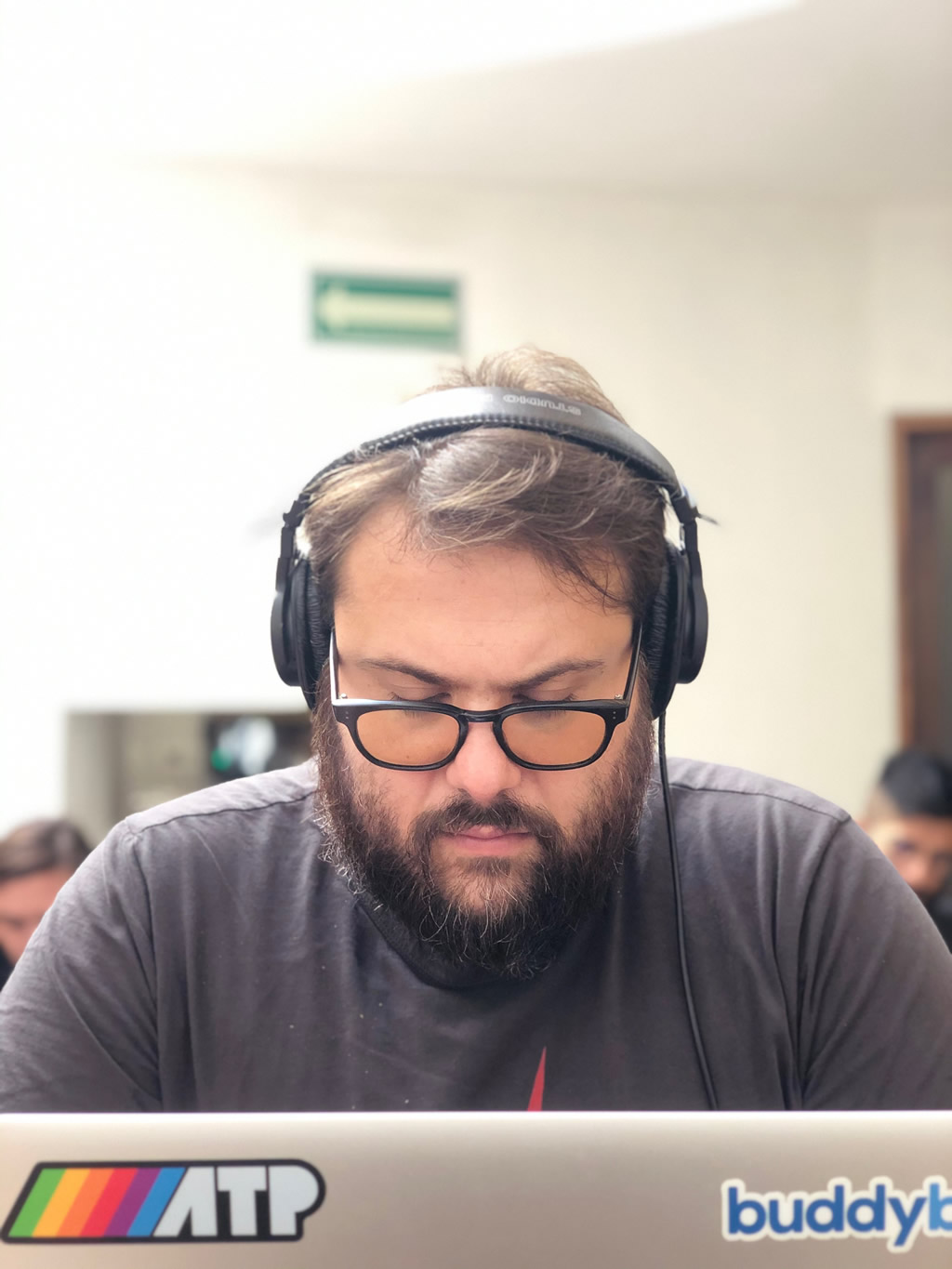
Developer Maximilian Maksutovic hard at work
How did you all meet?
I met Andrew in 2008 at Sonoma State University, where I was studying Music Composition. I was on my way to a composition lesson and outside of my professor’s office, Andrew was speaking with my professor in which he said “Oh! You two should get to know each other!” He was right! It was an instant friendship. I met Atharva when I was the software lead at Biomeme Inc. I hired him as an iOS engineer as a co-op, and I never met someone as gifted and talented for software at such a young age. Even as a co-op he went up and beyond what was required and wrote world class code. After my tenure at Biomeme, we both split off doing our own ventures and came back into our lives by total good fortune right at the point I started writing the transcription engine. I asked him if he wanted to go on a crazy adventure building this app and he said yes and here we are!
I cannot stress how important the actual music part of a music app is Share on XWhat advice do you have for those who want to make a music app?
It is REALLY hard! That said, I can’t imagine working in the software world without it being music related. As a lifetime musician, who took a bit of a Faustian bargain going into CS/Entrepreneurship, merging my two loves together has been one of the most rewarding and fulfilling things I have done in my life. It allows me to leverage my deepest passion (music) while building a world that can help other musicians make more music.
Outside of all the feel good stuff, I cannot stress how important the actual music part of a music app is. One of the most challenging aspect was needing to make very specific and sometimes subjective decisions regarding the actual musical implementation (How to spell chords, properly transposing keys, etc…). I could not have done it without all of my years of music training.
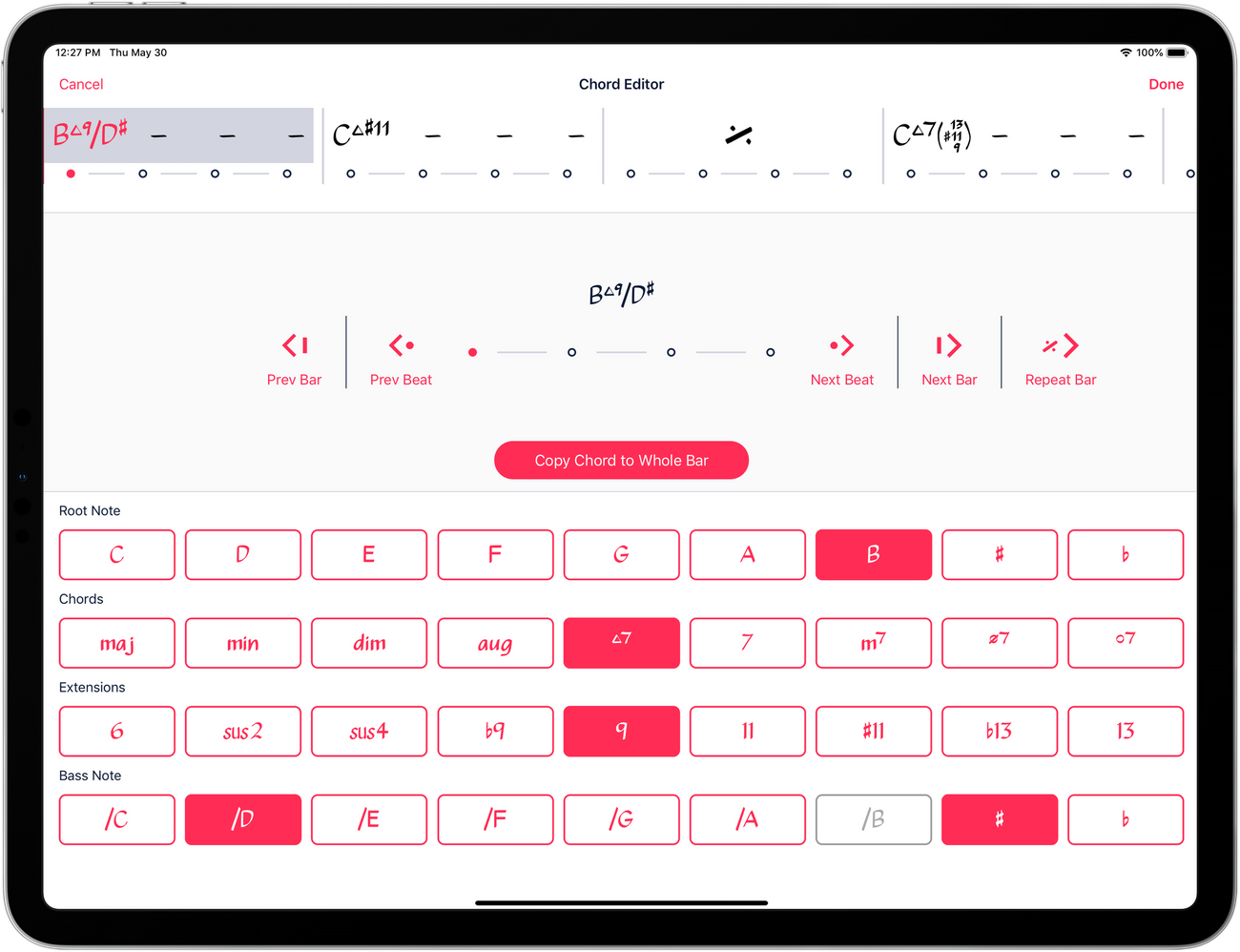
Why did you decide to use AudioKit?
The concept for Changes was very ambitious. I knew it was going to require a lot of components: sequencing, MIDI, audio recording/playback, sampling. If I had to roll all these components myself, it would have been an impossible task. Coming across AudioKit was a total boon and allowed us to quickly build a proof of concept within a month. In only 4 months of development we went from proof of concept to public beta with our own booth at NAMM. AudioKit was absolutely essential for this, not only the incredible library, but the amazing and supportive community.
Do you have any advice for those doing pitch recognition, especially poly pitch recognition?
Thankfully for mono pitch recognition, AudioKit’s built in Pitch Tracker is world class. For poly pitch recognition, expect to read many math-heavy white papers, and hours of testing. Each application has their own needs, implementation, and requirements so you are going to just need to spend a good amount of time tweaking your algorithm for your specific use case. Another very important consideration is performance, depending on your window and bin sizes, you can have impossibly long processing times for not that much increase in accuracy. I wasted a lot of time trying to be clever and thinking I was going to squeeze incredible amounts of accuracy through specific processing methods, however I ended up getting the same accuracy with much better processing time by not analyzing every single frame of audio.
Probably the most important point to consider is the old adage Garbage In, Garbage Out. If your input isn’t very good or the playing is sloppy, you are *never* going to get expected results. This can be challenging with users who don’t understand why their chords look off. You can spend hours with perfect testing data but once it gets into the real world with real musicians, the fundamental shortfalls of this generation of chord recognition algorithms comes to a head. The future is definitely in machine learning, and with the latest updates to CreateML and CoreML are very promising. It is my dream to help AudioKit start a poly chord recognition module using CoreML. However this is a HUGE project and will require a lot of planning. Poly pitch recognition is still one of those things often put behind paywalls and proprietary code, I’d love to be a part of making an open source implementation and open this amazing tech for more musicians and developers.
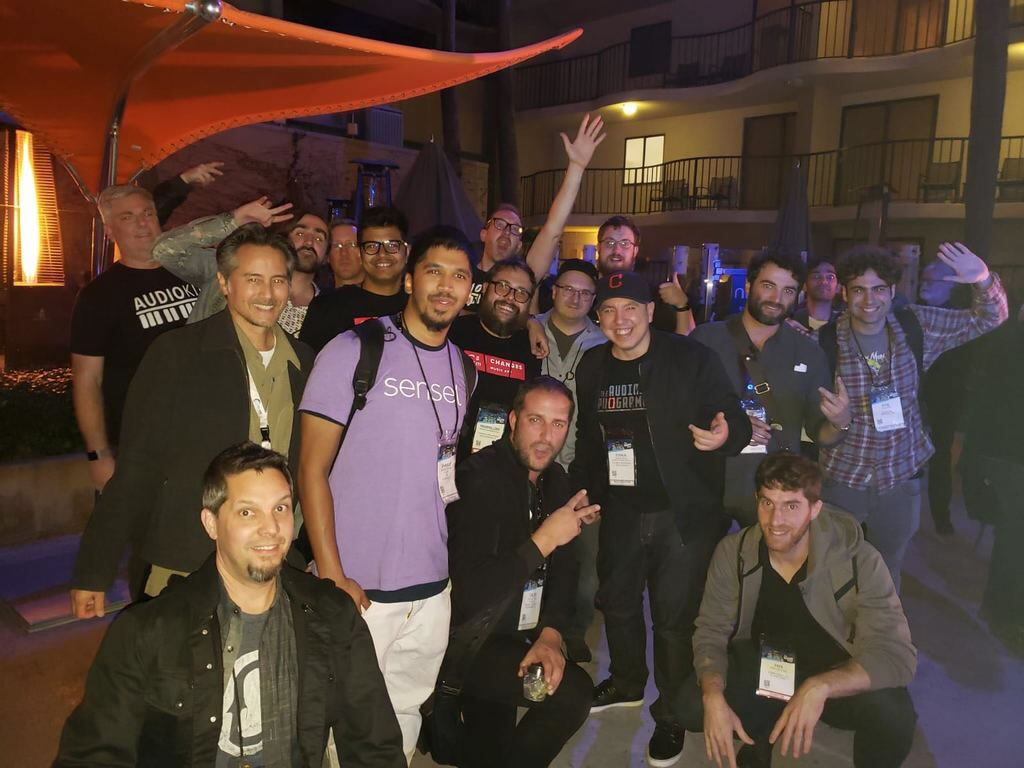 Audio Developer meetup at NAMM 2019
Audio Developer meetup at NAMM 2019
Do you think being at a traditional conference like NAMM is good for app developers?
Undeniably yes! NAMM gave us direct access to our customers and let us do market validation in 4 days for the cost of $3500. This was huge, we were able to talk with music educators, studio musicians, and amateur musicians, and get valuable feedback. I know other startups who spend much more time and money getting basic validation.
Now, that said, it is *not* for the faint of heart! If you ever been to NAMM as a visitor, you know how overwhelming and exhausting it can be. Multiply that feeling by 10x for being an exhibitor!
What do you have planned in the future for your current apps and new apps?
We are very close to releasing a big update that includes lyrics! You will be able to write and auto-layout lyrics into your chord-sheets for your own songs or covers. We are looking at licenses for having libraries of existing music from famous artists be available for download. This is great for musicians like accompanists, students, or wedding bands. We are working on an iPhone version as well, which will be a big boon for recording quick ideas on the fly and having them auto-sync to your iPad. We have a lot of other big ideas, but the main effort right now is getting more users and more feedback.
Final Thoughts?
We need more music apps! I had a great conversation at WWDC with a fellow AudioKit community member, and we both had the thought that the music category on the App Store is lacking mostly due to the extremely high bar both technologically and musically to build a quality music app. The more tools we as an open source community can build directly for music, like AudioKit, the lower that bar becomes, and perhaps higher quality apps can be built cheaper and faster.
I’d like to see more professional, high quality apps and tools for musicians, as they are really severely lacking on the App Store. With more tools being built, perhaps we can see a world with more music creation, and more live music, which I think our modern world so desperately needs.
Great job Max & Andrew! Thanks for sharing your story.
Learn more about Changes: ChangesMusicApp.com



